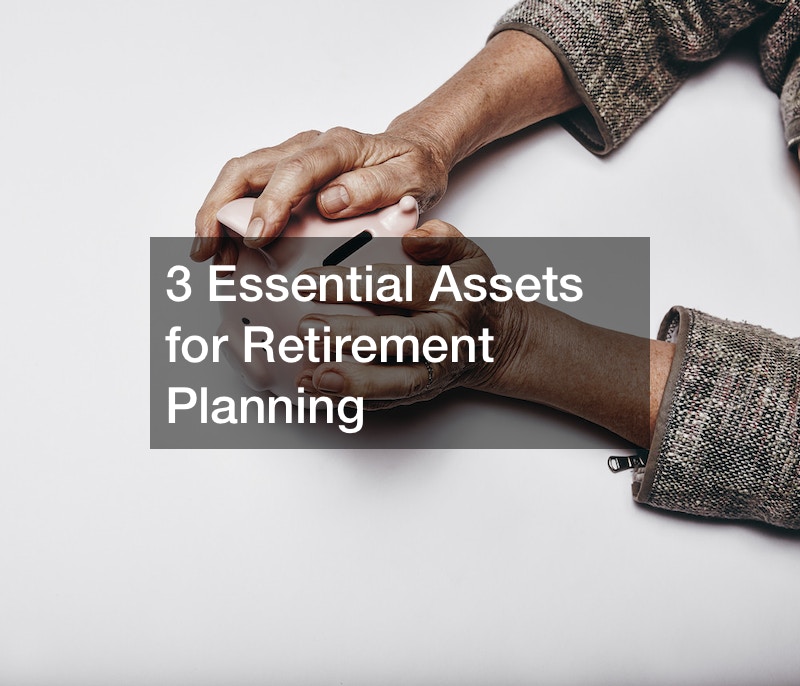
Renting out your home can be a financially savvy decision offering numerous advantages. This approach can transform your primary residence or an investment property into a steady income stream. While the benefits of renting out your home are plentiful, it’s essential to understand the responsibilities and logistical challenges involved in becoming a landlord. This article explores various facets of renting out a home, from financial gains and preparation to ongoing management and legal considerations. We’ll delve into crucial topics such as preparing your home for the rental market, managing tenant relationships, understanding tax implications, and navigating maintenance issues. Also, we’ll highlight how services like window replacement companies, home renovation contractors, and siding contractors can enhance your property’s appeal and value. Whether you’re new to property rental or a seasoned landlord, this comprehensive guide will equip you with the knowledge to make well-informed decisions. Let’s delve into the myriad benefits and responsibilities that come with renting out your home.
What Are the Financial Benefits of Renting Out Your Home?

Renting out your home can provide a reliable source of passive income, significantly impacting your financial portfolio. One of the main benefits of renting out your home is the potential for financial stability, as rental income can cover mortgage payments, property taxes, and maintenance costs. Moreover, the surplus income can be reinvested into other ventures, thereby diversifying your financial investments.
Another financial gain is the appreciation of the property’s value over time. As the real estate market changes, property values typically increase. This potential appreciation can offer long-term financial benefits, making your property a valuable asset in your financial strategy. Engaging a local lawn care company or a fencing company can enhance the property’s curb appeal, potentially increasing its rental value and eventual selling price.
Tax benefits further amplify the financial advantages of renting out a home. Landlords can deduct several expenses, such as property management fees, repair costs, and even travel expenses related to property oversight. These deductions can significantly reduce your taxable income, increasing the overall profitability of your rental venture. By understanding these financial benefits of renting out your home, you can make informed decisions that optimize both short-term gains and long-term value.
How to Prepare Your Home for Rent?
Preparing a home for rental involves both aesthetic and functional upgrades to attract quality tenants and justify competitive rental prices. One of the first steps is ensuring the home is in good condition, which might include installing granite counters or updating fixtures in areas like the kitchen and bathroom. Enhancements like these not only make the home more appealing but can also increase the rental value.
Another crucial step is conducting a thorough cleaning and minor repairs before showing the property to potential tenants. This includes addressing any necessary renovations or repairs, such as working with window replacement companies to update outdated or broken windows. Repairs and improvements ensure the property meets market standards and help prevent future issues, providing peace of mind for both you and your tenants.
Safety is also a top priority when preparing your home for rent. Routine checks on safety features such as smoke detectors, carbon monoxide detectors, and secure door locks are necessary. Hiring professionals like a siding contractor can ensure the home’s exterior is well-maintained and insulated against weather challenges, further enhancing security and comfort for tenants.
What Are Common Maintenance Costs When Renting Out a Home?

Maintenance is an ongoing responsibility for landlords and understanding the associated costs is crucial. Regular upkeep ensures the property remains in good condition and reduces the likelihood of expensive repairs down the line. Common maintenance costs include landscaping services from a local lawn care company, ensuring the property remains an attractive and welcoming space for tenants.
Appliances and fixtures often require repairs or replacement, which are standard operational costs when renting out a home. Being prepared for these expenses is part of ensuring a smooth rental experience. Window replacement companies can offer solutions when windows need updating or when damages occur, which can impact the overall maintenance budget.
Additionally, exterior maintenance is crucial, as weather and time can affect the home’s exterior integrity. Employing tree service professionals to manage and trim trees on the property can prevent them from causing damage during storms. Regular inspections and maintenance from roofing providers, such as roof decking services, are also necessary to prevent leaks and other issues that could lead to more extensive damage.
How to Manage Tenant Expectations and Responsibilities?
Effective communication is foundational in managing tenant expectations and responsibilities. Establishing clear guidelines about rules, rent, and maintenance obligations helps prevent misunderstandings and conflicts. Providing new tenants with a detailed lease agreement outlining these responsibilities is a proactive step towards a harmonious landlord-tenant relationship.
Periodic updates and reminders regarding roles, such as the care and maintenance required from tenants, can further minimize disputes. This may include reminders about keeping the property clean, adhering to noise regulations, and promptly reporting maintenance issues. Regular property inspections can offer opportunities to address any outstanding concerns and ensure that tenants are fulfilling their part of the agreement.
Offering supportive services can also aid in managing tenant expectations. For example, suggesting a reliable local lawn care company for yard maintenance or informing tenants about trusted apartment movers when transitioning can enhance their rental experience. Creating an environment of cooperation and respect leads to improved tenant satisfaction and potentially longer tenancy periods, ultimately protecting the benefits of renting out your home.
How Can Renting Out Your Home Impact Its Long-Term Value?
Renting out your home can significantly impact its long-term market value. One effect is the enhancement of property value through regular upkeep and strategic improvements, ensuring the property remains competitive in the real estate market. Employing professional services, such as tree service and window replacement, can maintain the property’s external appeal and functionality.
The income generated from renting can be reinvested into property upgrades, using it for renovations that increase both the aesthetic and practical value. Consider replacing outdated fittings with modern, durable options or adding features such as granite counters and upgraded roofing with the assistance of roof decking services. These improvements can make the property more attractive to potential buyers, should you decide to sell.
Moreover, having a well-managed property can enhance its reputation and desirability. Quality tenants can contribute positively by maintaining the property, further safeguarding its condition over time. This diligent management can preserve or even enhance your property’s value, fulfilling the broader benefits of renting out your home in terms of financial growth and asset appreciation.
What Are the Tax Implications of Renting Out Your Home?

Understanding the tax implications of renting out your home is vital for maximizing your property’s profitability. Rental income is taxable, meaning you must report it in your tax returns. However, tax laws allow landlords to deduct numerous costs, which can offset some or all the taxes owed on rental income.
Deductible expenses can include mortgage interest, property taxes, operating expenses, and repair costs. Collaborating with services like a reputable siding contractor or roofing and deck maintenance professionals may offer additional tax advantages when these services are deemed necessary to maintain the property. Accurate record-keeping of these expenses is crucial for optimizing tax relief and ensuring compliance with tax regulations.
Engaging with a financial advisor or tax professional can help navigate the complexities of rental property taxes. They can provide tailored advice concerning your financial profile and property details, ensuring you fully capitalize on the tax benefits of renting out your home. This informed approach not only ensures compliance but also enhances the financial viability of your rental venture.
How to Find Reliable Tenants?
Finding reliable tenants is crucial for the stability and success of a rental property. The process often begins with comprehensive marketing strategies to reach a broad audience, coupled with clear, appealing listings. Highlighting key features such as updated interiors, maintained by home renovation contractors, can attract serious inquiries.
A rigorous screening process is vital to secure responsible tenants. This includes background checks, credit checks, and rental history verifications to assess the applicant’s reliability and ability to meet rental obligations. Ensuring that potential tenants understand the lease agreement, including their responsibilities, helps prevent future conflicts and maintain the benefits of renting out your home.
Establishing a good relationship with local service providers, like a trusted siding contractor, can be an asset when preparing for tenant transitions. Reliable vendors can ensure the property remains in excellent condition between tenancies, which enhances appeal in the rental market. A well-maintained property with a strong tenant-vetting process contributes to a positive rental experience for both parties.
How to Handle Evictions and Legal Disputes?
Handling evictions and legal disputes is a challenging aspect of being a landlord but a necessary skill to protect your investment. Familiarizing yourself with local tenant laws helps ensure that any action taken is legal and defensible. An understanding of these regulations can guide appropriate responses when tenant violations occur.
Clear lease agreements are essential for handling disputes. By setting well-defined rules and consequences within the lease, you establish a legal framework that assists in resolving conflicts efficiently. Should eviction become necessary, documenting all incidents and communications can support your case within legal proceedings.
Sometimes, seeking legal advice or assistance from professionals, such as apartment movers with experience in tenant transitions, can be beneficial. They can offer insights or services to handle evictions smoothly and legally. Successfully managing tenant disputes upholds the property’s integrity and access to continued benefits of renting out your home.
What Insurance Coverage is Needed for a Rental Property?

Insurance coverage is essential for protecting your investment property and mitigating potential risks. A standard landlord insurance policy typically covers property damage, liability protection, and loss of rental income. Property damage coverage can assist in dealing with accidents or natural disasters, ensuring financial protection.
Liability protection is crucial for safeguarding against legal issues arising from tenant injuries within the property. Engaging professional home renovation contractors can help maintain safety standards, lessening the likelihood of such incidents. Proper insurance ensures you are not solely financially responsible for injuries or accidents occurring on your premises.
If renovations or upgrades are made, updating your insurance policy to reflect these changes is essential. Informing your provider about new building materials, such as concrete companies enhancing your driveway, prevents coverage discrepancies should you need to file a claim. Comprehensive coverage helps preserve the long-term benefits of renting out your home, providing reassurance and security for your investment.
How to Maintain a Positive Landlord-Tenant Relationship?
Maintaining a positive landlord-tenant relationship is beneficial for both parties, promoting a cooperative living arrangement and long-term tenancy. Open communication is the foundation of this relationship, ensuring that tenants feel heard and respected. Regularly seeking feedback and addressing any concerns promptly fosters a healthy rental environment.
Being proactive about maintenance issues and ensuring timely repairs enhances tenant satisfaction. Collaborating with concrete companies or other professionals for timely updates or repairs can reduce tenant frustration and contribute to seamless property management. A well-maintained property communicates care and concern, reinforcing trust in the landlord-tenant relationship.
Offering small gestures of appreciation or incentives, such as a modest rent discount for on-time payments, can encourage good behavior and enhance tenant loyalty. Creating a positive experience for tenants ensures your property’s reputation remains strong, which in turn supports the enduring benefits of renting out your home. This proactive approach leads to tenant retention and sustained rental income.
Renting out your home offers numerous financial and strategic advantages, augmenting your income, enhancing property value, and diversifying your investment portfolio. The benefits of renting out your home extend beyond immediate financial gains, offering long-term value through property appreciation and tax deductions. However, maximizing these benefits requires a comprehensive understanding of the responsibilities and challenges associated with property rental.
From preparing your home with renovations and updates by employing granite counters and reliable window replacement companies, to understanding tax implications with the help of skilled roof decking services, each step can add substantial value. Navigating tenant relationships, managing legal disputes, and ensuring appropriate insurance coverage are equally critical in safeguarding your investment.
This guide underscores the importance of strategic planning and informed decision-making in property rental. By maintaining a positive landlord-tenant relationship, employing effective management strategies, and utilizing professional services when needed, you fortify the substantial benefits of renting out your home. A well-managed rental property can serve as a lucrative component of your financial portfolio, offering substantial rewards for those who approach it wisely.



